This article will cover repair of rear wheel brake mechanisms
Repair of disc brakes
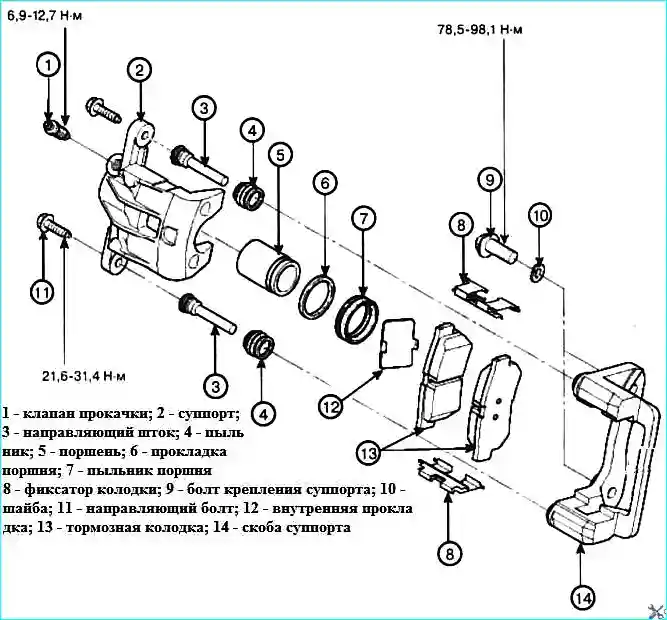
Removal
Prepare the car, loosen the wheel nuts on the side of the task being performed.
Raise the rear of the car and install it on reliable supports.
Remove the wheel
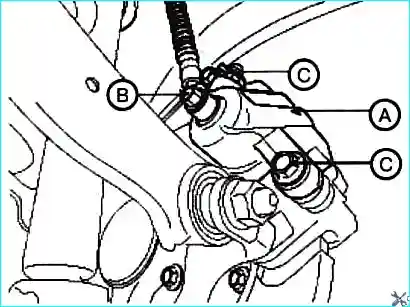
Unscrew the brake hose mounting bolt (B)
Then unscrew the guide bolts (C) from the brake caliper assembly (A)
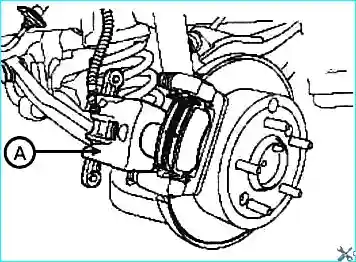
Remove the brake caliper (A), as shown in the figure.
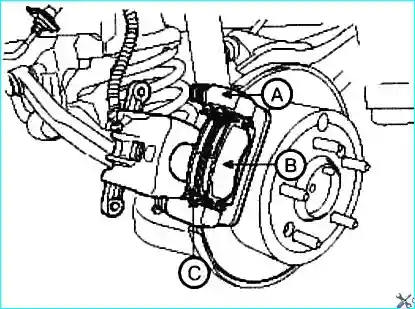
Remove the brake pads (B), pad linings (C) and pad retainers from the caliper bracket (A)
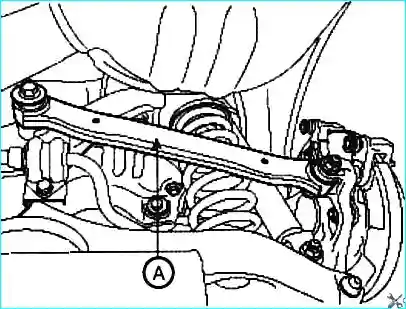
Remove the upper rear suspension arm (A)
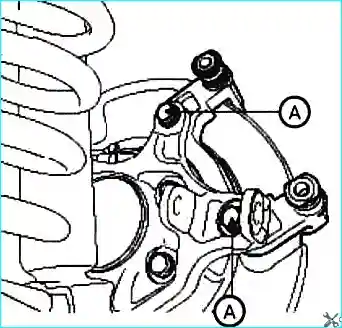
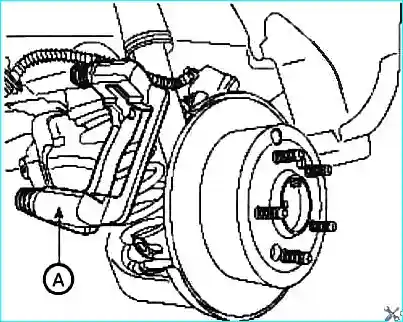
Unscrew the mounting bolts (A) and remove the brake caliper bracket
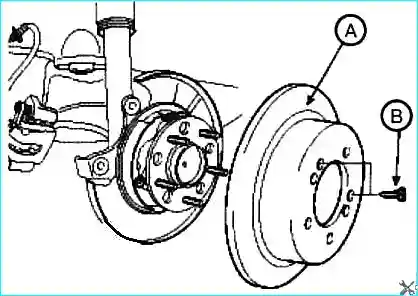
Unscrew the mounting screws (B) and remove the brake disc
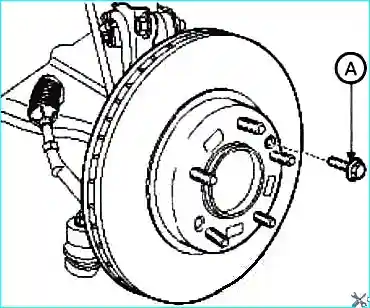
If the brake disc is stuck to the wheel hub and cannot be removed, you need to tighten the M8 bolt and press the disc
Replacing the pads
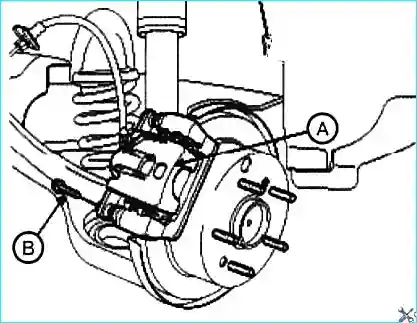
Unscrew the guide bolt (B) and lift the brake caliper (A)
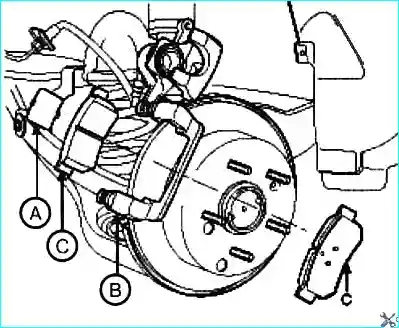
Remove the brake pads (B) from the brake caliper bracket together with the gaskets (C) and retainer
Install new brake pads
Installing the brake mechanism
Install the brake disc on the wheel hub, then tighten the mounting screws with a tightening torque of 4.9-5.9 Nm
Install the brake caliper bracket and tighten the mounting bolts with a tightening torque of 49.0-58.8 Nm
Install the upper arm of the rear suspension, tighten the nut and mounting bolt
Install the brake pad retainers and the brake caliper bracket
Install the brake pads together with the gaskets on the retainers.
The brake pad with the wear indicator must be installed on the inner part.
If the brake pads have not been replaced, they must be installed in their original position e, to prevent loss of brake efficiency.
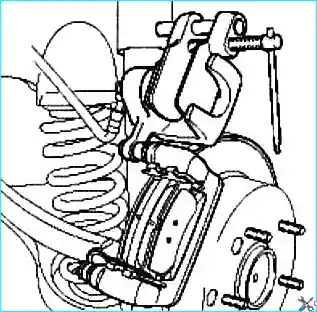
Using the 09581-11000 tool, move the caliper piston inside the cylinder
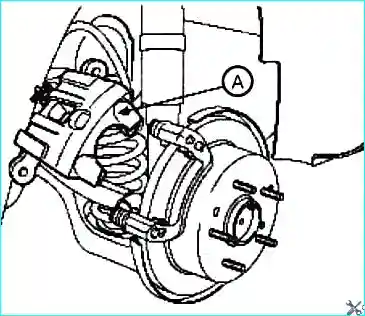
Install the caliper assembly (A)
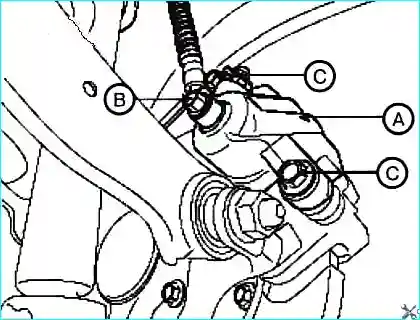
Connect the brake hose to the caliper by tightening the mounting bolt (B). Then install and tighten the guide bolt (C).
Tightening torques for the mounting bolts: bolt (B) 24.5-29.4 Nm; bolt (C) 21.6-31.4 Nm.
Fill the master cylinder reservoir to the maximum mark
Bleeding the brake system, article - Bleeding the hydraulic brake system
Then check the efficiency of the brakes and the presence of brake fluid leaks
Repair of the drum mechanism
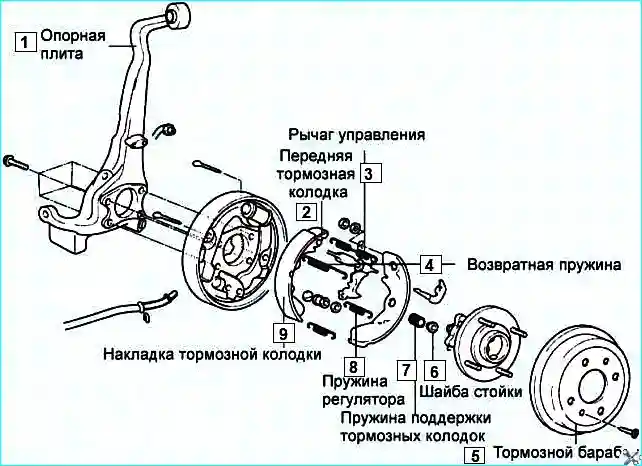
Remove the wheel and brake drum
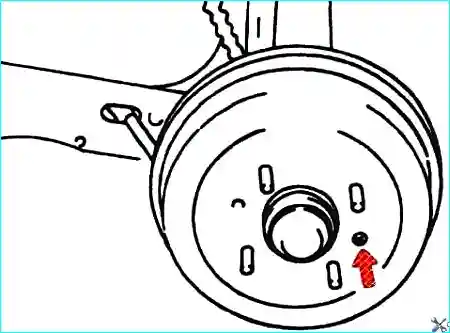
If the brake drum is difficult to remove, evenly screw the bolts into the threaded holes for the brake drum mounting screws and press the drum
After unscrewing the nuts, remove the rear hub with the brake drum
Remove the lower and upper return springs
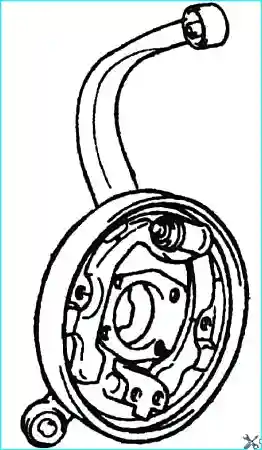
Removing the brake pads and adjuster assembly
Checking
Measure the inner diameter of the brake drum
Replace the brake drum if the inner diameter exceeds the limit values
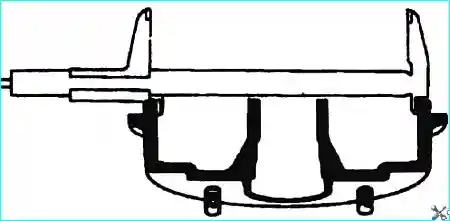
Brake drum diameter 228.6 mm. The maximum permissible diameter of the brake drum is 229.6 mm.
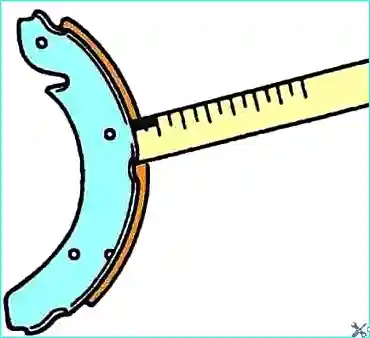
Measuring the thickness of the rear brake pads
The thickness of the brake pads is 4.45 mm.
The minimum permissible thickness of the brake pads is 1.5 mm.
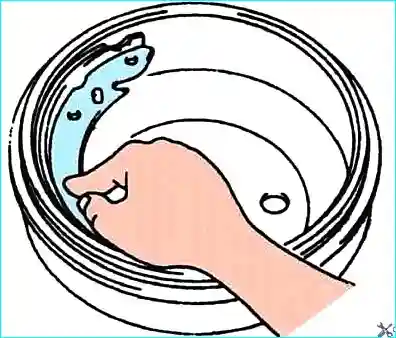
Check the uniformity of the brake shoe to the brake drum
The drum should not have excessive corrosion or damage on the outside
Check the support plate for wear or damage
Installation
Lubricate the following contact points of the brake shoes:
- - contact points of the brake shoes with the brake shield;
- - contact points of the brake shoes with the anchor plate.
Recommended lubricant: SAE J310, NLGI No. 2
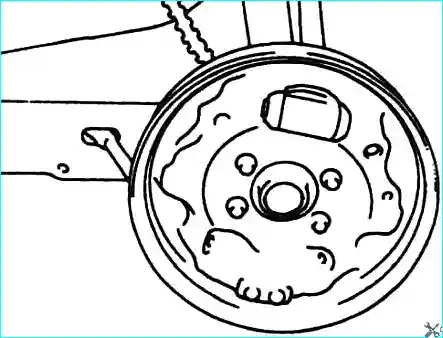
Installing the brake pad support stand
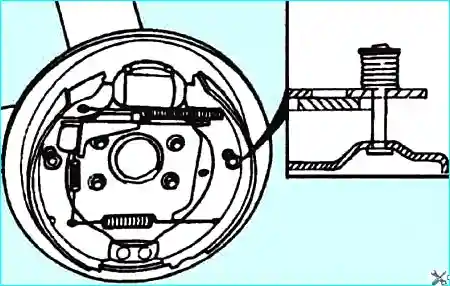
Installing return springs on brake pads
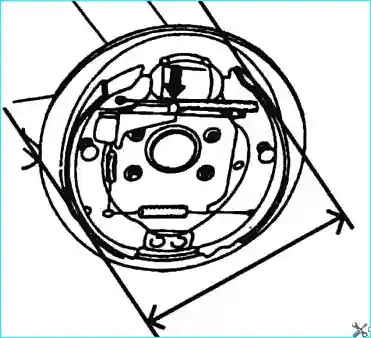
Measure the outer diameter of the installed brake pads and adjust the size to 227.6-228.1 mm
After installing the brake drum, tighten the parking brake lever several times





